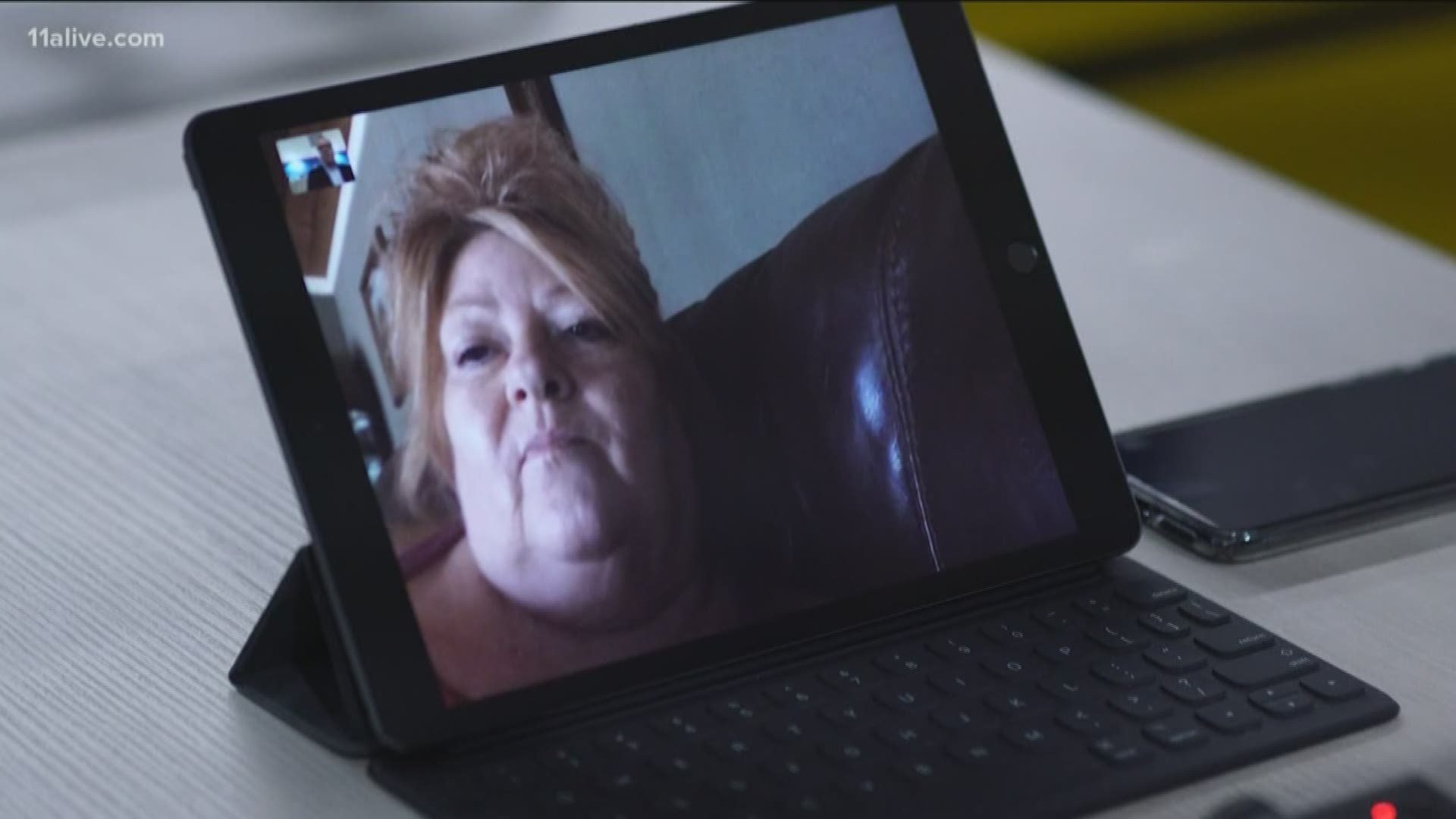Cheryl didn’t want us to use her last name for privacy concerns, but she did want us to find out why she, and potentially others across the country, couldn’t get tested for the novel coronavirus.
But why couldn’t she?
“So I call my doctor this morning and it starts this two and a half hour run-around. And the conclusion I have is no one has tests,” Cheryl said as she sometimes deeply coughed and apologized while she used FaceTime to be interviewed.
Cheryl had to be interviewed this way because she not only said she had similar COVID-19 symptoms - like fever and trouble breathing - but she also had to self-quarantine after someone at work was suspected of having the virus.
On top these two aspects, Cheryl falls into two categories identified by experts as “high-risk” groups for COVID-19 exposure. She is over 60 and has a compromised immune system.
“Hopefully I don’t have it, but I don’t know. If I do have it, I don’t want to infect all the people, but with no way to get a test, how do you know?” she asked.
During Tuesday night’s news conference with the vice president and members of the Coronavirus Task Force, Health and Human Services Secretary Alex Azar advised Americans to, “Call your doctor’s office if you believe you may have the novel coronavirus.”
Within hours of that statement, call logs confirm Cheryl did just that.
First, she called her general practitioner’s office to inform them that she not only thought she displayed some symptoms of the virus, but that she wanted a test. She said that office then gave her a COVID-19 hotline number for the hospital physician’s group.
However, when she finally reached the hotline, they told her they didn’t have any tests yet. Cheryl would continue making calls to her county and state departments of public health, which then referred her to the Centers for Disease Control and Prevention DC in Atlanta. She said the CDC insisted that only her general practitioner could order a coronavirus test, so she called back.
After multiple calls and nearly two and half hours later, Cheryl’s journey ended with her doctor’s office recommending she call her employer and without a COVID-19 test, which left her in limbo and others potentially susceptible to contracting the virus.
“It’s a vicious cycle. Call here, call here, call here, call here. Everybody’s referring you around.” she said.
When 11Alive called some of the same numbers she called, we got the same answer: No testing.
“When we look at COVID-19, it's gone around the world in about two months, and that is actually the future of emerging infections,” said University of Georgia Infectious Disease expert, Dr. Jose Cordero.
Cordero also said people like Cheryl should be tested.
“Well, if we take the recommendations of the current recommendations of CDC, she would qualify for testing…At least she needs to call the doctor, and, and if that continues, that she may need to go to the emergency room,” he said.
Previously testing protocols outlined a person had to have traveled to certain locations internationally but then they changed to having contact with someone who tested positive for COVID-19, while also presenting symptoms. Now with the novel coronavirus appearing in communities across the U.S., despite the total number of American’s tested still being unclear,, is leading the CDC to allow doctors to order tests based on symptoms alone.
But we found that the physicians group hotline that Cheryl called is still asking about foreign travel as a prerequisite for testing. Testing they said they’re not set up to do.
“That is a failing. It is a failing. Let’s admit it, a system where you put it out there in the public, and a physician asks for it, and you go get it. The idea of anybody getting it easily the way people do in other countries are doing it. We’re not set up for that. Do I think we should be? Yes. But we’re not,” Dr. Jose Cordero said.
The Georgia Department of Health, which Cheryl also called, said they’d be sending out an alert to all doctors, underscoring the CDC’s latest guidance: Doctors don’t need approval or a kit, just their opinion and a swab they can send to a commercial lab for COVID-19 testing.
We are continuing to follow up with Cheryl—and every link in this chain—to find out where the tests are, and how those who are at risk can get them.
In Georgia, the risk of contracting COVID-19 remains low, according to officials. At 11Alive, we’re focusing our news coverage on the facts and not the fear around the virus. To see our full coverage, visit our coronavirus section, here: www.11Alive.com/Coronavirus.
OTHER HEADLINES

